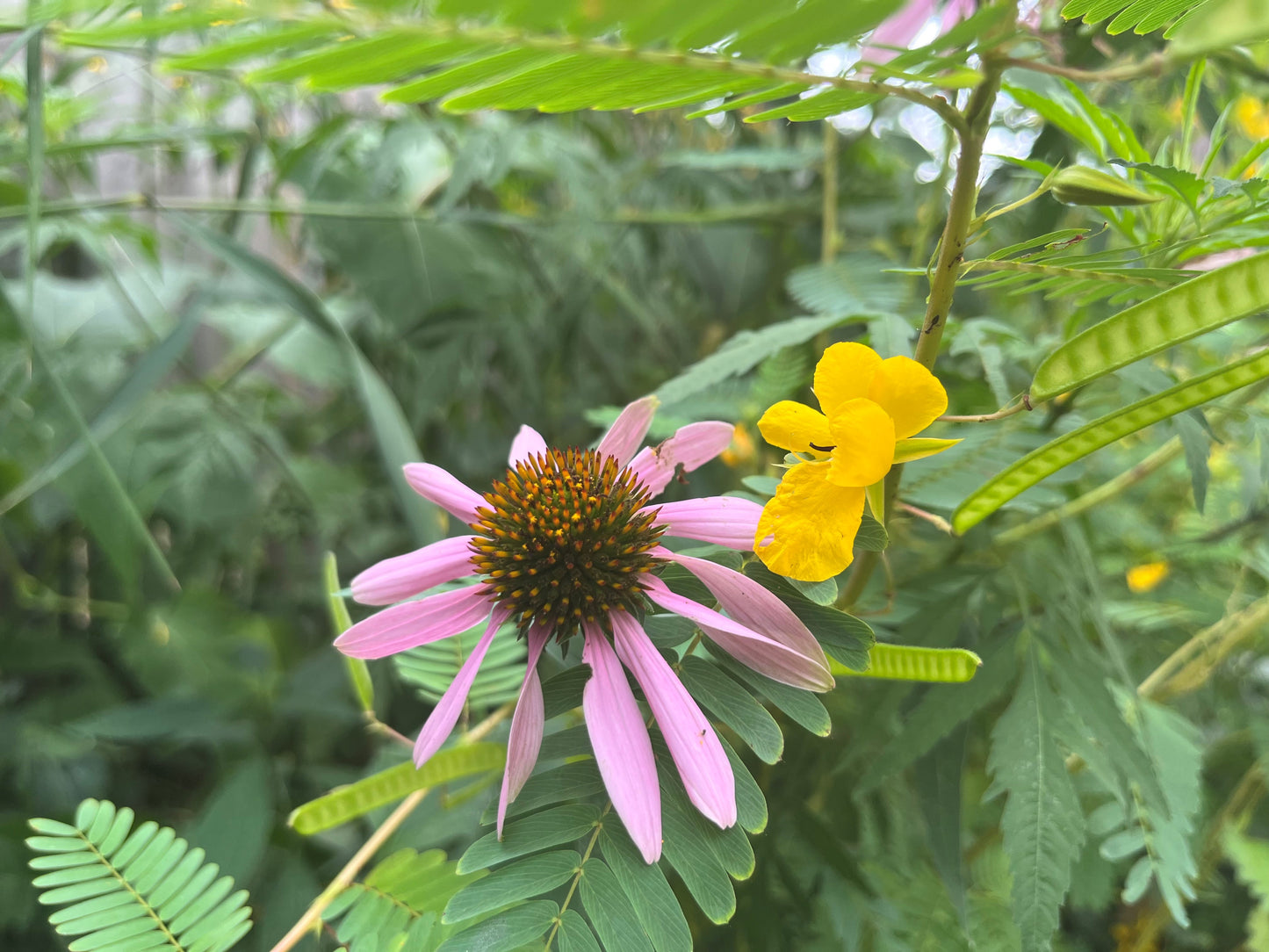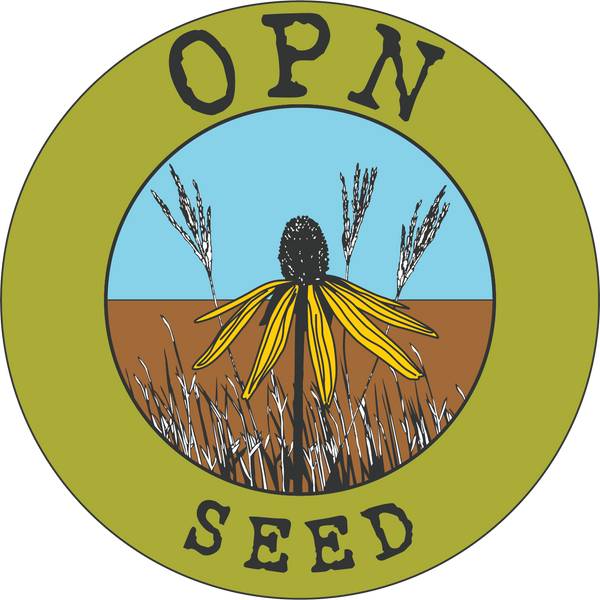The "I Have Clay Soil" Native Seed Mix
The "I Have Clay Soil" Native Seed Mix
Couldn't load pickup availability
One of the questions we get a lot is "What mix do I plant in my clay soils?" But, what is clay soil? Let's define it...
Clay soils are just soils that have a higher percentage of clay particles than silt or sand. Clay particles are smaller than silt and sand and tend to pack together which causes water to pool after rain events or from melted snow and runoff. Compaction from pedestrians or machines can exaggerate this packing of clay particles making the soil almost impenetrable to water. Clay soils can range from marginally clay dominant soils to almost all clay soils. OPN Seed's Clay Soil Mix is good for most areas where clay soils are found. The native species are adapted to grow in these soils and should do so.
Some things to remember:
Please keep in mind that this mix will take 2 to 3 growing seasons to fully establish and may display stunted growth as it works to establish. There are always exceptions and where this mix will grow is no different.
If the soil is very compacted, you may need to break it up before seeding. Contact us if you have questions about this.
If your soils are so clay based and compacted that they hold water like a swimming pool for weeks and months at a time and you can play a pickup basketball game on the other parts, you may need to amend the soils before planting.
Contacting your county Soil and Water Conservation District to get a soil test conducted may be a good idea in certain circumstances.
In most cases where these areas pool water for a few days and then it drains into the soil, this is your mix! Contact us if you have questions. We're here to help!
Contains the following species:
Grass and Grasslike Species:
Elymus virginicus - Virginia Wild Rye
Bouteloua curtipendula - Side-oats Grama
Schizachyrium scoparium - Little Bluestem
Panicum (Dichanthelium) clandestinum - Deer-tongue Grass
Carex vulpoinoidea - Brown Fox Sedge
Carex brevoir - Plains Oval Sedge
Scirpus pendulus - Rufous Bulrush
Wildflowers:
Senna hebecarpa - Wild Senna
Echinacea purpurea - Purple Coneflower
Coreopsis lanceolata - Lanceleaf Coreopsis
Bidens aristosa - Tickseed Sunflower
Astragalus canadensis - Canadian Milk Vetch
Dalea purpurea - Purple Prairie Clover
Chamaecrista fasciculata - Partridge Pea
Rudbeckia hirta - Black-eyed Susan
Senna marilandica - Maryland Senna
Zizia aurea - Golden Alexanders
Dalea candida - White Prairie Clover
Allium cernuum - Noddin Wild Onion
Aster pilosus - Frost Aster
Aster novae-angliae - New England Aster
Liatris pycnostachya - Prairie Blazingstar
Tradescantia ohiensis - Ohio Spiderwort
Rudbeckia subtomentosa - Sweet Black-eyed Susan
Ammannia coccinea - Scarlet Toothcup
Solidago nemoralis - Old Field Goldenrod
Seed Info
PLS Lbs. Per Acre Broadcast=12
PLS=Pure Live Seed
Pure Live Seed is a measure of viable seed stated as a percentage. It is the product of total germination times purity.
Example: 96% Germination x 93% Purity = 89% PLS
All of our native warm season grasses and seed mixes are sold PLS.
Broadcast Seeding is the process of sowing seed by hand. The seeds are sprinkled into the soil and can be lightly raked in to ensure germination.
This mix of native grasses and wildflowers typically grows to a height of 2 to 5 feet. Please note that each site is unique and that several factors can affect overall height. These factors include sunlight, hydrology and overall soil health.
Product Details
Flower Color: Green, Yellow, Purple, White
Height: 2 to 5 Feet
Light Requirements: Full Sun to Partial Shade (At least 4 to 6 hours a day)
Soil Hydrology: Dry to Wet Soils
Bloom Time: May through October
Plant Type: Annual/Perennial
Attracts: Birds, Bees, Butterflies and Humans
Suggested USDA Planting Zones: 3-7
Product Code: CSHM01
Color Boosters
The native perennials in your mix do require some patience to establish, but for instant gratification consider adding any of these quick establishing annuals. They're perfect pollinators plants, too!
Cover Crops and Seed Carriers
Share


